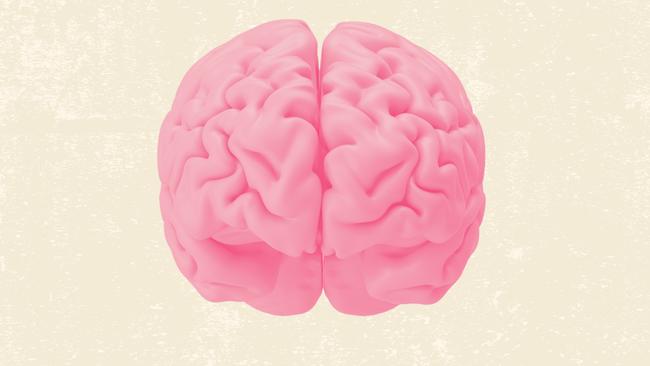The middle-aged brain – is yours declining too fast? Here’s how to sharpen it
Early signs that our cognitive health is on a downturn are the mundane and often barely noticeable mild daily memory issues.

It’s an acknowledged curse of midlife that you turn 40 and overnight your waistline seems to thicken, your joints start creaking and niggling health complaints begin to escalate. As if that’s not enough to deal with, neuroscientists at University College Cork (UCC) now warn that the brain is prone to substantial shifts in size and function resulting in a precipitous drop in cognitive health in our forties and fifties.
Rapid deterioration in cognitive abilities can occur even in those who are otherwise healthy, say the researchers, although it often goes unnoticed. But it’s not all doom and gloom, because a greater understanding as to why midlife is so critical in terms of brain health means we can do something about it.
Sebastian Dohm-Hansen, a researcher in UCC’s Department of Anatomy and Neuroscience and lead author of the new review paper published in the journal Trends in Neurosciences, says that for decades, brain research has focused on addressing the impact of cognitive disease in older people and that only now is scientific focus switching to the “accelerated changes” that occur in the brain from our forties onwards.
“Once someone has an age-related cognitive disease in their sixties and seventies, it is almost too late to make significant improvements,” he says. “By then the window of opportunity for therapeutic intervention may very well have closed.”
Brain fluctuations occur throughout life, but a gradual decline in function begins in our twenties to thirties. Then, during our forties and fifties, there’s an abrupt shrinkage of the hippocampus, a part of the brain involved in memory and helping to form new neurons, and a reduction in volume of white matter, the connections between brain cells important for reasoning, language and memory skills. “As white matter decreases, information isn’t transmitted as fast,” he says. “Reaction times slow down and complex tasks can seem more difficult.”
For some women, the menopause transition can further influence cognitive function. “The fluctuation of sex hormones during the menopause is known to have a small effect of regulating the size of certain brain areas including the hippocampus,” Dohm-Hansen says. “But there is a lot of individual variation and in some people there is a reversal after the menopause.”
The role played by the “gut-brain axis” – the two-way physical and chemical connection between gut and brain – may also be significant. “Your gut microbes are certainly not static and there’s evidence that some types of microbe undergo abrupt and accelerated changes during middle age,” he says. “That may be one reason why we also see abrupt changes in metabolites that are harmful to the brain circulating in the bloodstream.”
Although science can’t yet accurately predict how our brains may age, being able to take a snapshot of our middle-aged brain health is on the horizon. For a study in the journal Neurology, researchers at Johns Hopkins University and the University of Mississippi found that a raft of readily available clinical biomarkers, such as white blood cells and inflammatory molecules that end up in the bloodstream and interfere with normal brain functioning, can be used to predict cognitive function 20 years down the line.
“A lot of the blood markers that seem to be indicative of brain changes are things that doctors already measure for other reasons,” he says. “They are not yet used in a clinical setting for this reason and would need to be packaged in the right way, but it does suggest that biological measures will be useful for assessing brain health in the future.”
For now, the early signs that our cognitive health is on a downturn are the mundane and often barely noticeable mild daily memory issues, such as losing the car keys more often or a declining ability to focus on tasks and work. It might seem nothing out of the ordinary but could signify adaptations in the brain that come with negative consequences.
What is certain is that what Dohm-Hansen refers to as “the hurried ticking of the clock” can be slowed from outside the brain to some extent through lifestyle measures known to stall age-related decline.
Midlife is a time when pounds creep on, metabolism slows and fitness declines, all of which can contribute to a rise in inflammatory messengers in the bloodstream that then make their way into the brain, adversely affecting its functioning. “Critically, good habits such as regular exercise, plenty of sleep and a balanced diet really do matter in terms of bringing beneficial molecules into the brain or by reducing levels of the inflammatory markers that are so harmful,” he says.
In a joint study between UCC’s APC Microbiome Ireland and King’s College London (KCL), researchers are looking more closely at how exercise affects our gut microbiota and brain health in middle age. “The middle-aged brain is woefully understudied,” says Professor Sandrine Thuret, head of the Adult Neurogenesis and Mental Health Laboratory at KCL. “But if we can intervene to change this trajectory of brain ageing even a little bit through lifestyle habits, it could have a dramatic impact for future cognitive health.” Here’s how:
1. Eat more fibre (or take a 15p supplement)
Studies show that a diet rich in fibre “is associated with more beneficial cognitive outcomes”, Dohm-Hansen says, and that important chemical messengers derived from the gut microbiota have an effect on the brain. Of particular interest to scientists is butyrate, a short-chain fatty acid produced by bacterial fermentation of fibre in the gut. “Butyrate is one of these interesting molecules that make their way across the blood/brain barrier into the brain,” he says. “It seems to have very beneficial effects, particularly on the hippocampus.”
In the UK, the average fibre intake is about 18g a day, well below the recommended 30g daily, so we should start making up the shortfall by consuming more wholegrains, fruit and veg, lentils, nuts and seeds.

A fibre supplement is another option according to researchers at KCL who recently reported in Nature Communications journal that a cheap, commercially available plant fibre supplement, inulin, which cost 15p a day, improved brain function in a group of people in their sixties. After 12 weeks, those taking the fibre pill performed better in tests assessing brain function, reaction time and processing speed than those who were given a placebo.
2. Build your cognitive reserve
Building up your cognitive reserve by engaging in stimulating hobbies and tasks such as sudoku, crosswords, reading, organising activities and joining a quiz team, is a bit like working a biceps muscle through weight training. “It makes your brain stronger and more resilient,” Dohm-Hansen says. It is partly why early retirement can be something of a double-edged sword.”
Stopping work reduces stress, which is known to have a negative impact on brain health, but on the other hand it can present a void in terms of cognitive demanding daily tasks. A Lancet report in 2020 found that people who retired early had a proportionately higher rate of dementia later in life “but that could have been because those people quit early as a result of underlying health issues including cognitive decline”, Dohm-Hansen says.
“It is clear that people who keep brains active with spatially complex games and cognitive stimulating tasks have less of a steep decline and even sometimes a slight improvement in brain function and memory,” he says.
3. Watch your blood pressure
“What’s good for your heart is generally good for your brain,” Dohm-Hansen says. “And avoiding hypertension is important for cognitive health.” Last year, a study part-funded by the British Heart Foundation (BHF) showed that damage to nine specific regions of the brain can be caused by high blood pressure. In the long term, the BHF researchers from the University of Edinburgh and Jagiellonian University Medical College, Krakow, concluded that hypertension may contribute to a decline in cognitive function, such as memory loss and a decline in thinking skills.
The BHF says about five million adults in the UK have undiagnosed high blood pressure and the only way to check is to have a test. You can do this at a surgery, a pharmacy or at home and the NHS advice is to do so at least every five years. Normal blood pressure for people under 80 is between 90/60mmHg and 120/80mmHg.
4. Keep your body clock to a strict routine
Many studies have suggested that sleep – or a lack of it – has a long-term impact on the brain, with one of the most recent, involving 22,078 midlifers and published in Age and Ageing journal, showing that those who don’t get enough sleep in their forties to sixties could be more prone to developing dementia.
Getting too much or too little sleep in middle age has a particularly harsh effect on cognitive health, according to a team of Australian researchers who also published their findings last year. In their study of 29,544 UK adults, the team from the University of Canberra and the Australian National University found that those who regularly got less than six hours’ sleep or more than nine hours, or who were prone to lots of “daytime dozing” in midlife, had worse brain health.
They added that “sleep is an important target to improve brain health” before old age. “Our sleep does become shorter, lighter and more fragmented from middle age onwards,” says Kevin Morgan, emeritus professor of psychology at Loughborough University’s Clinical Sleep Research Unit. “Regularity is so important and to keep sleep anchored in our forties and fifties, the best thing to do is always get up at exactly the same time, regardless of your bedtime, aiming for 7-8 hours if you can get it.”

5. Eat a heart-healthy diet
Having a heart-friendly diet has been shown to improve cognitive function later in life with women who followed the Dietary Approaches to Stop Hypertension diet during middle age found to be about 17 per cent less likely to report memory loss and other signs of cognitive decline decades later.
In their study of 5,116 women published last year in Alzheimer’s & Dementia journal, researchers from New York University’s Grossman School of Medicine suggested that the diet – which includes high amounts of plant-based foods and low amounts of saturated animal fat, salt and sugar – may help to improve cognitive function later in life.
Meanwhile, the Mediterranean-Dash Intervention for Neurogenerative Delay diet combines elements of two healthy approaches. “It emphasises lots of leafy green veg, such as spinach and kale, and darker berries including blackcurrants and blueberries because they are high in antioxidants that can prevent cell damage,” the nutritionist Rhiannon Lambert says. “Oily fish and the omega 3 acids it contains are also important for brain health.” Cutting out ultra-processed foods – packaged foods like cereal and ready meals – in middle age has also been shown to have a brain-protective effect.
6. Mix up your exercise
“Exercise has a big impact on the brain,” Thuret says. “It can help to slow down decline in overall health as we get older.” She says that while animal studies have shown that regular running boosts production of new neurons by as much as 30 per cent, other types of activity are beneficial.
“Previously it has been cardio activity, such as running and cycling, that has been studied but running isn’t for everyone and our current research looks at the effects of a mixed approach of aerobic, strength and functional body weight sort of exercises performed three times a week.”

Three months into the study, participants are sticking to their prescribed workout plans. “We are measuring how their cognition changes and improves by taking blood samples,” Thuret says. “What we want to find is how exercise helps to allow for new neuron production in the brain and so far results look promising.”
The Times





To join the conversation, please log in. Don't have an account? Register
Join the conversation, you are commenting as Logout